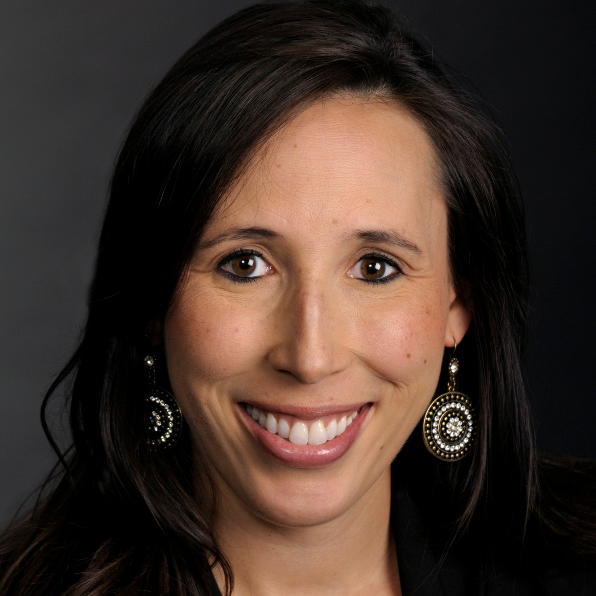Despite pressure to look pretty, ASU study finds women who work at it are judged as being less moral

Women can’t win, it would seem.
While society puts intense pressure on them to look attractive, new research at Arizona State University has found that women who try hard to look good are perceived as being less moral.
The dispiriting results were revealed by a research project that measured people’s judgments of women who put a lot of effort into makeup and hairstyling to enhance their appearance. The paper, “How Beauty Work Affects Judgments of Moral Character and Consumer Preferences,” was recently published in the Journal of Consumer Research and was written by Adriana Samper, an assistant professor of marketing at the W. P. Carey School of Business at ASU; her co-author, Linyun W. Yang of the University of North Carolina; and Michelle Daniels, a doctoral student in marketing at the W. P. Carey School of Business.
“It was kind of depressing because there was this total paradox,” Samper said.
“There are so many incentives to look attractive but you shouldn’t actually seem like you’re trying to look attractive because then people won’t trust you. They’ll see you as less moral.”
Research has already shown the benefits of the “beauty premium,” she said.
“People who are more attractive get lower prison sentences, earn more money and are perceived as more socially adept and confident,” she said.
Adriana Samper is an assistant professor of marketing at the W. P. Carey School of Business at ASU.
So Samper and Yang created a package of seven online studies looking at how people perceive effort at “beauty work,” defined as makeup and hair styling that women do themselves. The subjects read vignettes about women’s beauty routines and, in one of the studies, looked at photos. The vignettes described a morning routine for a woman who spent either an hour and 45 minutes (high effort) or 10 minutes (low effort) on beauty work.
The moral judgments were based on two factors, Samper said: “It has to be transformative and it has to be transient. It has to make you look different and not last for a long time.”
Respondents were judging that the women who used high effort were “misrepresenting” themselves by changing their appearance in a transient way, she said.
Some of the results were:
• Women who expended a lot of effort on skin care, such as using cleansers and moisturizers, were not judged to be less moral because those actions don’t change short-term appearance.
• When the respondents looked at photographs, women who were of average attractiveness and used high effort in beauty work were judged as less moral than women who were already attractive and also used high effort.
• Women who exercised so they could look better were not judged to be less moral, because the effect was not short-term.
• Moral judgments were mitigated when the high-effort beauty routine was for a specific reason, such as a job interview or a social event. In that case, the woman was not perceived to be less moral.
Daniels said that one of the pre-tests showed respondents’ bias toward “low effort” beauty routines.
“Everyone said they spent less time than the average. Clearly, there was this idea that they didn’t want to talk about it,” she said.
Michelle Daniels is a doctoral student in marketing in the W. P. Carey School of Business at ASU.
Daniels joined the project as part of her honors thesis for her undergraduate marketing degree in 2013. She was involved in a study that tested perceptions of an actual makeup brand by women who use cosmetics. They saw the items with one of two marketing slogans: “Being Yourself Matters” or “First Impressions Matter.” The women who saw the “first impressions” version were more likely to buy the products, aligning with the concept that it’s OK to put effort into transforming your appearance for an external goal.
The research has real-world use for cosmetics marketing, Samper said.
“A lot of ads will emphasize how effortless something is: ‘Spend a few moments and you can look flawless.’ Or they’ll say that it taps into your natural appearance, so it doesn’t feel like it’s a big change,” she said.
Samper was on the team that produced research published last year about products, such as cupcakes and napkins, that consumers consider “too pretty to use” because of the effort that went into creating them.
“… While people value the effort put into making a product beautiful, they frown upon certain types of effort that go into making a person beautiful,” the current paper concludes.
One variable that the team didn’t include in this research was perceptions of plastic surgery, and Daniels will likely pursue that angle in her dissertation.
“Plastic surgery is in this domain where it can be seen as not effortful, because it can be a quick fix, but you are undergoing surgery and it’s long lasting.
“There something really interesting there.”
Top photo courtesy of Pixabay.com.
More Science and technology

Cosmic clues: Metal-poor regions unveil potential method for galaxy growth
For decades, astronomers have analyzed data from space and ground telescopes to learn more about galaxies in the universe. Understanding how galaxies behave in metal-poor regions could play a crucial…

Indigenous geneticists build unprecedented research community at ASU
When Krystal Tsosie (Diné) was an undergraduate at Arizona State University, there were no Indigenous faculty she could look to in any science department. In 2022, after getting her PhD in genomics…

Pioneering professor of cultural evolution pens essays for leading academic journals
When Robert Boyd wrote his 1985 book “Culture and the Evolutionary Process,” cultural evolution was not considered a true scientific topic. But over the past half-century, human culture and cultural…

